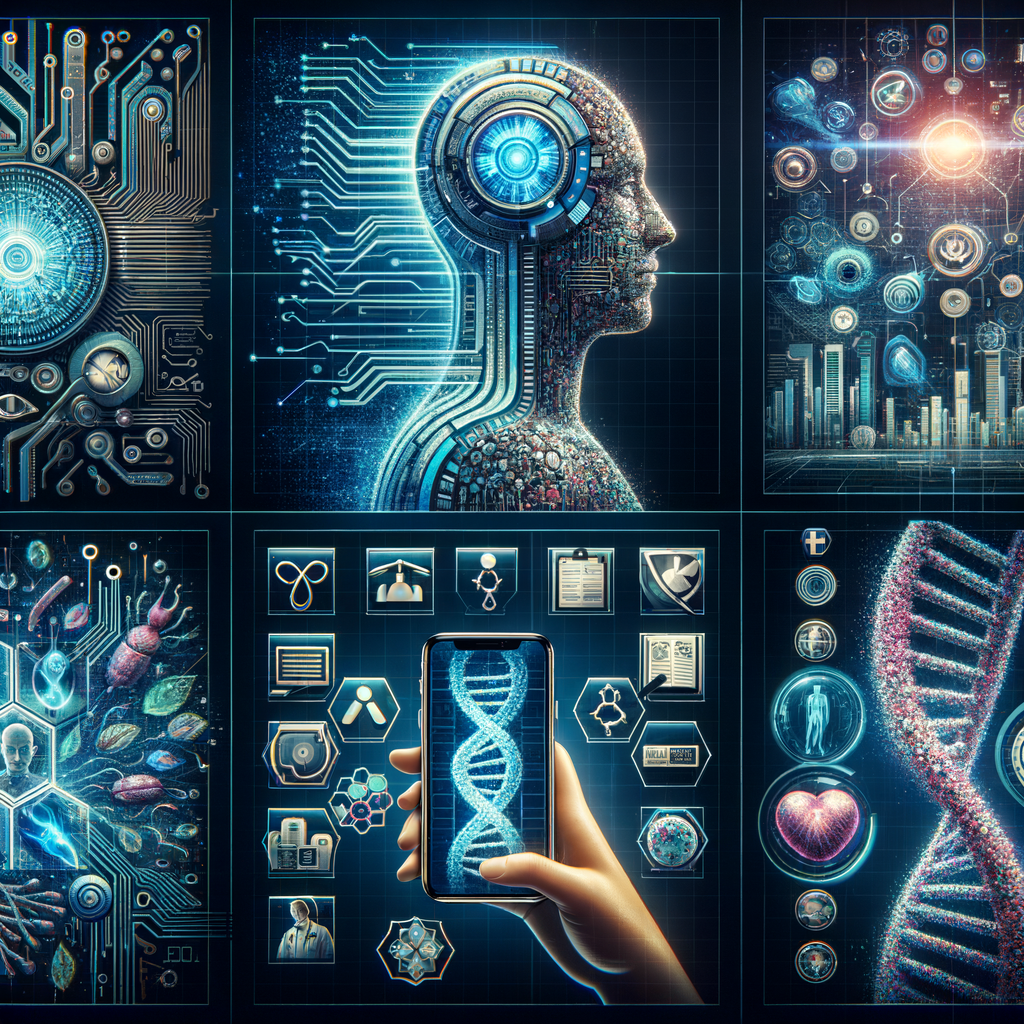AI Revolution in Chronic Disease Management
AI Revolution in Chronic Disease Management

Healthcare – AI Phone Agents Supporting Chronic Disease Management
The Revolution of AI in Healthcare
Technology has been making waves in various sectors, and healthcare is no exception. Specifically, AI phone agents are transforming how we manage chronic diseases. If you’re curious about how these virtual marvels are turning the tide in chronic disease management, you’ve landed at the right place!
What Are AI Phone Agents?
Imagine Siri, Alexa, or Google Assistant but specifically tailored for healthcare. AI phone agents are advanced conversational agents that leverage artificial intelligence to assist patients with chronic diseases. They’re always on call, ready to provide guidance, reminders, and emotional support.
The Growing Burden of Chronic Diseases
Chronic diseases like diabetes, hypertension, and heart disease are on the rise. Managing these conditions requires continuous monitoring, lifestyle modifications, and sometimes, a lot of patience and support. AI phone agents step in as a lifeline for many patients and healthcare providers.
The Need for Constant Monitoring
One of the cruxes of managing chronic diseases is effective and constant monitoring. A lapse can lead to severe complications or even life-threatening situations. Human diligence can wane, but AI phone agents are programmed for perpetual vigilance.
How AI Phone Agents Help in Chronic Disease Management
1. 24/7 Availability
Healthcare doesn’t adhere to a 9-to-5 schedule. Chronic conditions can flare up at any time, demanding immediate attention or advice. AI phone agents are available 24/7, providing an avenue for constant support, irrespective of the time of day.
2. Personalized Care Plans
AI phone agents can access a wealth of medical knowledge and patient history, which allows them to create highly personalized care plans. This isn’t a one-size-fits-all; rather, it’s tailored to meet each individual’s unique needs and conditions.
3. Medication Reminders
Forgetting to take medication can have dire consequences, especially for chronic diseases. AI phone agents send timely notifications to ensure that patients never miss their prescribed dosages, promoting better health outcomes.
4. Emotional Support
Living with a chronic disease can be emotionally taxing. AI phone agents provide an outlet for emotional support by engaging patients in conversations, offering words of encouragement, and being a digital shoulder to lean on.
5. Data Collection and Monitoring
These agents are not just interactive but also come with analytical prowess. They collect and monitor health data continually, providing valuable insights to healthcare providers for fine-tuning treatment plans.
Case Studies and Real-world Applications
Several healthcare providers have adopted AI phone agents to stunning results. For example, patients with diabetes have reported better blood sugar control and fewer hospital visits. Heart disease patients have seen improvements in their lifestyle habits and medication adherence.
1. Diabetes Management
In the realm of diabetes care, AI phone agents have been game-changers. They track blood glucose levels, offer dietary advice, and remind patients to take their insulin. A significant drop in HbA1c levels has been noted among users.
2. Managing Hypertension
Patients with hypertension benefit immensely from AI phone agents that monitor blood pressure, suggest lifestyle changes, and provide medication reminders, leading to better control over their blood pressure levels.
Challenges in Implementing AI Phone Agents
1. Privacy Concerns
With data collection being a primary function of these agents, privacy is a major concern. Ensuring that patient data is securely stored and transmitted is imperative to gaining user trust.
2. Integration with Existing Systems
Healthcare systems often use a variety of platforms that don’t always integrate seamlessly. Making sure AI phone agents work well within this milieu requires concerted efforts and sometimes substantial investments.
3. Cost and Accessibility
Not every patient has access to advanced technology or can afford it. Bridging this gap is crucial for equitable healthcare delivery. Solutions need to be both affordable and scalable to serve a broader population.
The Future of AI in Chronic Disease Management
The potential of AI in healthcare is just scratching the surface. As technology advances, AI phone agents could become more intuitive, offering even more tailored support and integrating with smart devices to provide a 360-degree care ecosystem.
Advanced Machine Learning
With advancements in machine learning, AI phone agents can become even more adept at diagnosing issues and providing solutions. They could potentially predict health flares before they occur, offering preemptive recommendations.
Expanding Reach
By making AI phone agents more affordable and accessible, healthcare providers can extend their benefits to underserved communities. This expansion can lead to a reduction in healthcare disparities and better outcomes for all demographics.
Conclusion
AI phone agents are more than just a healthcare fad; they are a significant leap forward in managing chronic diseases. From providing round-the-clock support to offering personalized care plans, these digital helpers are here to stay. With ongoing advancements, the future looks bright for AI-assisted chronic disease management.
FAQs
1. Are AI phone agents secure?
Yes, most AI phone agents adhere to strict data privacy guidelines to ensure that patient information is securely stored and transmitted.
2. Can AI phone agents replace human healthcare providers?
No, they are designed to assist and augment human healthcare providers, not replace them. They provide support and improve the efficiency of medical care.
3. What kind of chronic diseases can AI phone agents help manage?
They can assist with a variety of chronic diseases including diabetes, hypertension, heart disease, and more.
4. How do AI phone agents collect data?
These agents collect data through patient interactions and sometimes by connecting to wearable health devices that monitor vital signs.
5. Are AI phone agents expensive?
The cost can vary, but as technology becomes more advanced, efforts are being made to make these tools more affordable and accessible to a wider population.

